Dietitian vs. Nutritionist: What’s the Difference — and Why It Matters for Your Health

When it comes to improving your health, navigating nutrition advice can feel overwhelming. Online tips, social media trends, and well-meaning suggestions from friends can leave you wondering who to trust. And one question we hear often at Fitness Lying Down is:
“What’s the difference between a registered dietitian and a nutritionist?”
The two titles get used interchangeably, but they are not the same — especially if you’re dealing with real health concerns like peri-menopause, hormone changes, digestive issues, or weight loss resistance.
If you want evidence-based, personalized nutrition support that aligns with your fitness and wellness goals, understanding this distinction is crucial.
Let’s break it down clearly, simply, and with all the facts.
What Is a Registered Dietitian?
A Registered Dietitian (RD) — often called a Registered Dietitian Nutritionist (RDN) — is a nutrition expert who completes a nationally regulated, science-based education and training process. The credential isn’t earned quickly or casually.
A Registered Dietitian must:
- Earn a bachelor’s or master’s degree (as of 2024, a master’s is required for all new dietitians)
- Complete college-level coursework in anatomy, physiology, biology, organic chemistry, food science, biochemistry, and more — far beyond a “nutrition basics” course
- Complete at least 1,000 hours of supervised clinical practice in hospitals, community programs, and food service settings
- Pass a national certification exam
- Maintain ongoing continuing education to stay current on the latest nutrition science and recommendations
In short: Dietitians are trained to understand how food interacts with the body on a deep, physiological level — and how to apply that knowledge in both medical and everyday settings.
This is especially important when working with hormonal changes, chronic conditions, gut issues, and metabolism shifts common for women in their 40s and 50s.
What About a Nutritionist?
The term “nutritionist” is much broader — and much less regulated.
Some nutritionists have formal education or certifications. Others do not.
And in many states, anyone can legally call themselves a nutritionist.
Nutritionists can still be knowledgeable and helpful, but their training varies widely. There’s no standardized education, no required clinical hours, and no national exam or continuing education requirement.
A Simple Analogy: Mechanic vs. Dad Who Works on Cars

One of the best ways to understand the difference:
Working with a nutritionist can provide good advice and basic support — similar to how your dad might know a ton about cars and can fix a few things.
But a registered dietitian is like a certified mechanic. They have the education, training, testing, and credentials to handle complex systems safely and effectively.
If you’re facing something serious — like hormone imbalances, diabetes, digestive concerns, chronic inflammation, or weight loss resistance — you want a certified expert. You want a dietitian.
When Should You Choose a Registered Dietitian?
If you’re dealing with any of the following, working with an RD is especially important:
- Peri-menopause or menopause
- Hormone fluctuations
- Digestive issues or bloating
- Stress-related eating
- Weight loss resistance
- High cholesterol
- Heart disease risk
- Blood sugar abnormalities
- Fatigue or inconsistent energy
- Chronic inflammation
These situations require someone who understands physiology, metabolism, and medical nutrition therapy — not just surface-level wellness trends.
Nutrition and Fitness Go Hand-in-Hand
At Fitness Lying Down, we specialize in evidence-based strength training for women navigating busy schedules, life transitions, and the physical changes that come with aging. But we also know:
You can’t out-train poor nutrition or misinformation.
That’s why we’re proud to have Megan the Trainer RD on our team — so you can pair smart training with expert nutrition support from a registered dietitian.
If you’ve ever felt frustrated by conflicting nutrition advice, struggled with weight loss despite doing “everything right,” or wondered why your energy, hormones, or metabolism feel off… you don’t have to guess.
You don’t have to do this alone.
Want to Go Deeper?
You might love this related article:
👉 Are you following a nutrition plan that wasn’t made for you?
Ready for Evidence-Based Nutrition Coaching You Can Trust?
Book a Nutrition Blueprint Session with Megan the Trainer RD.
This one-on-one session gives you clarity, direction, and a personalized plan designed for your body, your goals, and your season of life. No generic templates. No guessing. Just science-backed support tailored to you.

